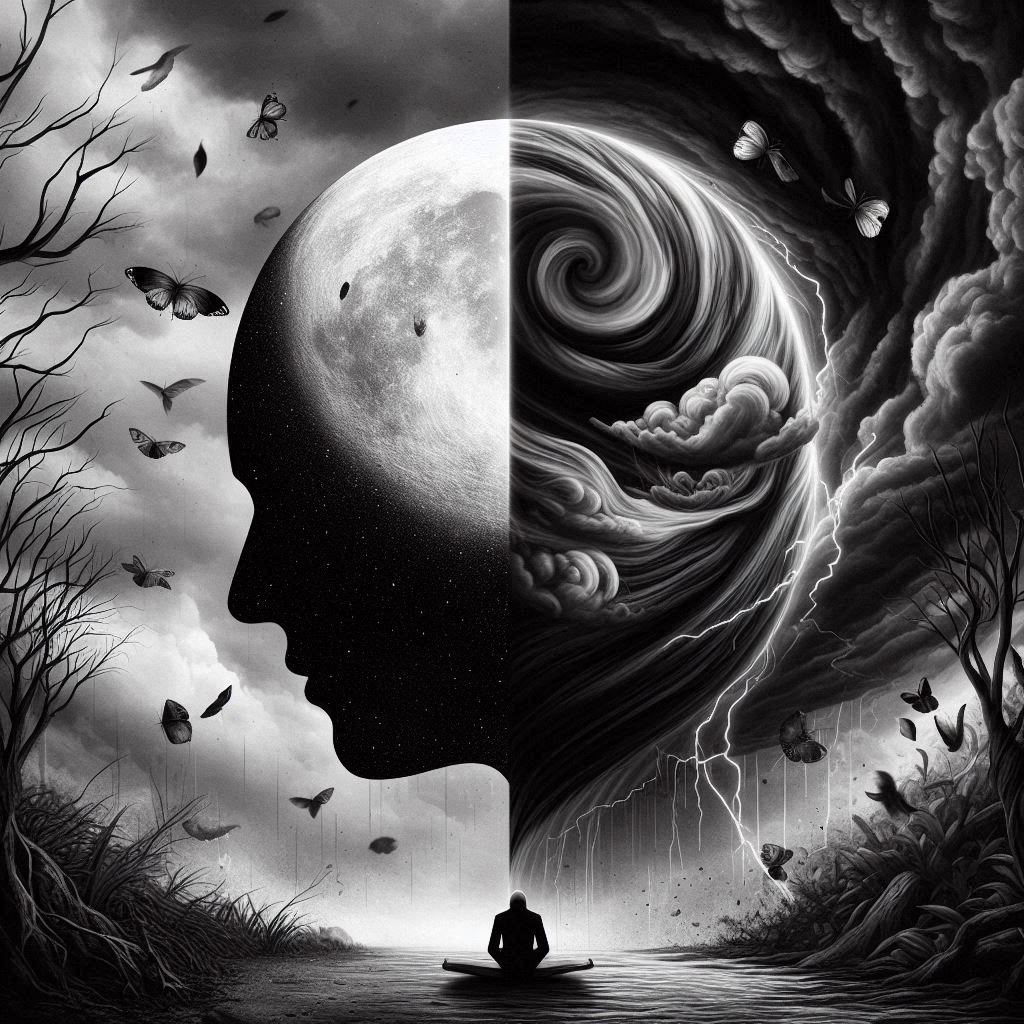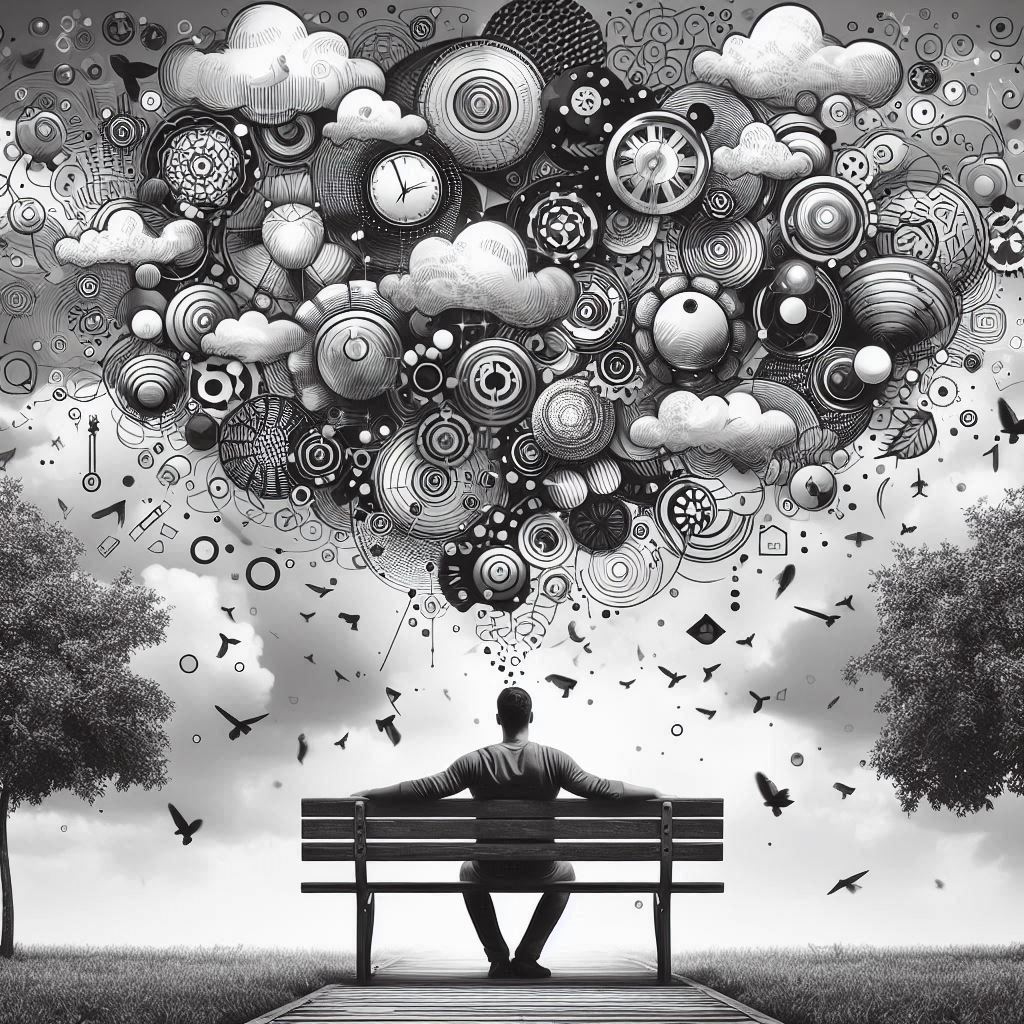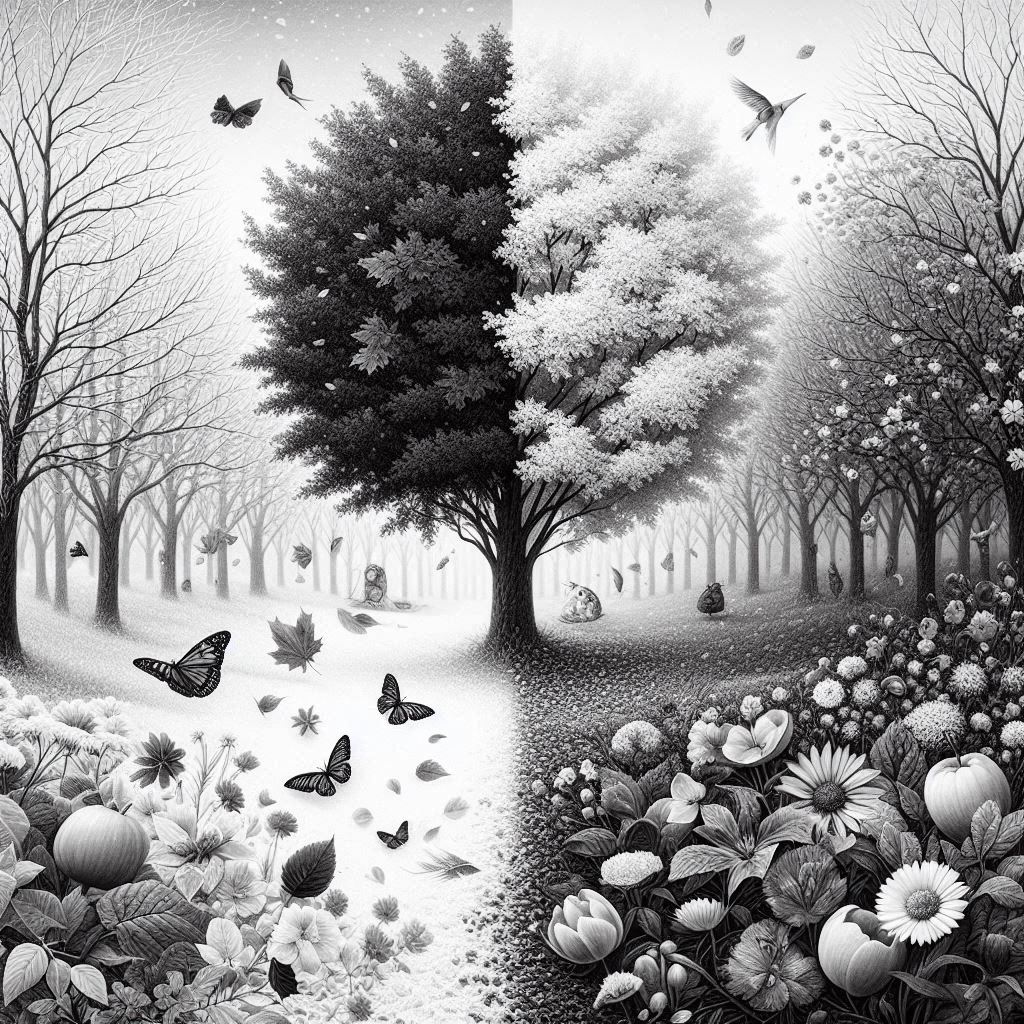Depression can feel like a shadow that never lifts. But what if the answer to alleviating this burden lies in something as surprising as magic mushrooms? Recent studies have started unveiling the potential benefits of psilocybin, the active compound found in certain mushrooms, in treating depression. Researchers at institutions like Johns Hopkins Medicine have shown that a single dose could improve mood in people with treatment-resistant depression.
Imagine a world where a natural remedy could offer a beacon of hope for those who haven’t found relief through traditional means. This isn’t just wishful thinking—it’s an emerging field of study that’s gaining serious traction. Let’s delve into how these humble fungi might revolutionize mental health care.
Understanding Depression and Current Treatments
Depression is a common but serious mood disorder that affects millions of individuals worldwide. It goes beyond feeling sad or going through a rough patch – it is a persistent feeling of sadness and loss of interest that can significantly impact one’s daily life and overall well-being.
Symptoms of Depression
Symptoms of depression can manifest differently in each individual but often include:
- Persistent Sadness: Feeling sad, empty, or hopeless most of the time.
- Loss of Interest: Losing interest in activities that were once enjoyable.
- Changes in Appetite: Experiencing significant weight loss or gain due to changes in appetite.
- Sleep Disturbances: Insomnia, oversleeping, or disrupted sleep patterns that affect restfulness.
These symptoms can vary in intensity and may persist for weeks, months, or even longer, impacting various aspects of life.
Learn more about symptoms of depression here.
Conventional Treatments
Traditional treatments for depression typically involve a combination of approaches, including:
- Therapy: Cognitive-behavioral therapy (CBT), interpersonal therapy, and other forms of psychotherapy can help individuals address underlying issues contributing to their depression.
- Medication: Antidepressants are commonly prescribed to help regulate mood and alleviate symptoms of depression.
- Lifestyle Changes: Incorporating regular exercise, healthy eating habits, sufficient sleep, and stress management techniques can support overall mental well-being.
While these treatments have shown varying degrees of success in managing depression, they also come with potential side effects and challenges. It’s essential for individuals with depression to work closely with healthcare providers to find the most effective treatment plan tailored to their unique needs and circumstances.
Explore more about conventional treatments for depression here.
By understanding the symptoms of depression and the available treatment options, individuals can take proactive steps towards managing their mental health and seeking support when needed.
The Role of Mushrooms in Mental Health
Mushrooms, particularly those containing psilocybin, have garnered attention for their potential impact on mental health. Let’s delve into how these fungi may offer a novel approach to addressing mental health conditions such as depression.
Psilocybin and Depression
Psilocybin, the active compound found in magic mushrooms, has been the subject of recent studies exploring its effects on alleviating symptoms of depression. Research has shown that psilocybin treatment can lead to significant reductions in depression severity, with some studies indicating long-lasting benefits for patients. Studies have reported that psilocybin treatment produced large decreases in depression levels, highlighting its potential therapeutic value. The rewiring effects of psilocybin on the brain have been linked to fostering greater connections between different brain regions in individuals with depression, potentially freeing them from entrenched patterns.
For more information on the effects of psilocybin on depression, check out this article: Psilocybin Treatment for Major Depression Effective.
Legal and Ethical Considerations
The use of psychedelics like psilocybin in mental health treatment raises important legal and ethical considerations. As attitudes toward psychedelic therapies evolve, discussions about the ethical implications of utilizing substances like psilocybin in therapy settings have become more prominent. Ethical concerns revolve around issues such as informed consent, patient safety, and the integration of psychedelic experiences into therapy. Legal frameworks are also adapting to accommodate the growing interest in psychedelic-assisted therapies, with regulations being reviewed and revised to ensure safe and ethical practices.
For a deeper dive into the legal and ethical issues surrounding psychedelic therapies, check out this resource: Ethical and Legal Issues in Psychedelic Harm Reduction.
Personal Stories and Experiences
An important aspect of exploring the potential benefits of mushroom therapy for depression lies in the personal stories and experiences of individuals who have found relief through this unconventional treatment approach. By sharing anecdotal accounts and subjective reflections, we gain a deeper understanding of the human side of this therapeutic journey.
A Glimpse into the Psychedelic Realm: Case Studies on Psilocybin
Buckle up, folks, because we’re about to venture into the realms of consciousness exploration with psilocybin, the star molecule found in certain mushroom species. These case studies will take you on a wild ride, challenging your perceptions and opening doors to profound self-discovery.
- The Artist’s Awakening: Sarah, a struggling painter, had hit a creative block that left her canvases painfully bare. That is, until she embarked on a guided psilocybin journey. As the molecules danced through her neural pathways, she found herself immersed in a kaleidoscope of colors and shapes. Suddenly, her artistic vision became crystal clear, and her brushstrokes flowed with newfound ease, translating the ineffable visions onto the canvas. Sarah’s artwork took on a vibrant, surreal quality that captivated audiences and reignited her passion for the craft.
- The Executive’s Ego Death: Meet Michael, a high-powered CEO whose ego had grown as large as his bank account. That is, until a fateful psilocybin experience shattered his sense of self. As the molecules worked their magic, Michael’s tightly-wound identity unraveled, and he found himself dissolving into the vastness of the universe. Gone were the trappings of success and status; he was left with a profound sense of interconnectedness and humility. Upon returning to the corporate world, Michael’s leadership style had undergone a seismic shift, prioritizing empathy, collaboration, and a holistic approach to business.
- The Therapist’s Transformative Journey: As a seasoned psychotherapist, Emma thought she had seen it all – until she embarked on her own psilocybin-assisted therapy session. What followed was a deep dive into her own psyche, unearthing long-buried traumas and limiting beliefs. Through the lens of psilocybin, Emma gained profound insights into her own patterns and defensive mechanisms, allowing her to heal and grow in ways she never thought possible. Her newfound self-awareness and empathy transformed her therapeutic practice, enabling her to guide her clients with a depth of understanding that transcended textbook knowledge.
- The Veteran’s Path to Healing: After years of battling PTSD from his combat experiences, Jake had all but given up hope of finding peace. That is, until a clinical trial introduced him to the therapeutic potential of psilocybin. As the molecules worked their magic, Jake found himself revisiting the traumatic memories that had haunted him for so long. But this time, he was able to confront them with a sense of detachment and acceptance, allowing the deep-seated emotions to finally surface and be processed. Through this cathartic experience, Jake was able to shed the weight of his past and embark on a journey of healing and personal growth.
- The Spiritual Seeker’s Cosmic Revelation: For years, Sophia had been on a quest for deeper meaning and spiritual fulfillment. Her psilocybin journey proved to be a pivotal turning point. As the molecules whisked her into a state of expanded consciousness, she found herself connected to a profound sense of oneness with the universe. Boundaries dissolved, and she experienced a visceral understanding of the interconnectedness of all things. This cosmic revelation left an indelible mark on Sophia’s spiritual path, infusing her with a sense of awe and reverence for the mysteries of existence.
These case studies merely scratch the surface of the transformative potential of psilocybin. Whether it’s shattering creative blocks, dissolving limiting beliefs, or facilitating profound healing, this remarkable molecule continues to challenge our understanding of consciousness and pave the way for personal growth and self-discovery.
Expert Insights
Delving into expert insights, mental health professionals and researchers shed light on the efficacy and safety considerations of incorporating mushrooms in depression treatment. Studies, such as the research conducted by Johns Hopkins Medicine on psilocybin treatment, showcase promising results in alleviating major depressive disorder. Experts emphasize the significance of creating a supportive environment with trained therapists to navigate the complexities of psychedelic therapy safely and effectively.
For more information regarding mushroom therapy and depression treatment outcomes, you can refer to resources like PSYCHEDELICS RESEARCH AND PSILOCYBIN THERAPY, which explore innovative approaches in mental health care.
Through these personal narratives and professional perspectives, the intersection of mushroom therapy and mental health offers a multidimensional exploration of hope, challenges, and transformation in the realm of depression treatment.
Future Directions and Contemplations
In envisioning the future landscape of mental health care, integrating mushroom therapy presents both challenges and opportunities. The potential for personalized treatment approaches through mushroom therapy opens new doors for tailored mental health interventions. Research in this field is essential to understand the efficacy and safety of such treatments fully. Further exploration of mushroom therapy’s integration into mainstream mental health care is crucial for advancing holistic wellness practices.
Challenges and Opportunities
The integration of mushroom therapy into mainstream mental health care faces various challenges and opportunities. While the stigma around psychedelics persists, there is a growing body of research showcasing the therapeutic potential of substances like psilocybin in treating depression and other mental health conditions. Implementing mushroom therapy on a broader scale requires overcoming regulatory hurdles and educating healthcare providers and the public about its benefits.
Personalized treatment approaches in mental health care can revolutionize how individuals receive care. By tailoring therapies to suit each person’s unique needs and experiences, mushroom therapy has the potential to offer more effective and targeted interventions. This shift towards personalized care emphasizes the importance of understanding the individual’s psychological makeup and how different treatments may impact their well-being.
The Journey to Healing
Embarking on the journey of healing and self-discovery through mushroom therapy can be a transformative experience for individuals seeking mental wellness. The process of integrating psychedelics into therapy allows individuals to explore their innermost thoughts and emotions in a safe and controlled environment. This journey goes beyond alleviating symptoms; it delves into the root causes of mental health conditions, fostering a deeper understanding of oneself.
Holistic well-being and mental health support play a vital role in the healing process. Mushroom therapy encourages individuals to address not only the symptoms of their conditions but also the underlying psychological and emotional aspects. This holistic approach emphasizes the interconnectedness of mental, emotional, and physical health, promoting overall well-being. By combining therapy with psychedelic experiences, individuals can embark on a profound journey towards self-discovery and inner healing.
For more information on the benefits of mushroom therapy in mental health care and the evolving landscape of psychedelic research, you can explore articles such as Magic Mushrooms, Psilocybin, and Mental Health and Psychedelics Research and Psilocybin Therapy.
Conclusion
Mushrooms, or more specifically psilocybin, have shown groundbreaking potential in treating depression. Traditional treatments often fall short, leaving many in search of alternatives. Psilocybin offers a refreshing and promising shift in this landscape.
The initial research is compelling. Individuals with treatment-resistant depression have reported substantial improvements after psilocybin treatment. It’s not just a glimmer of hope; it’s a beacon.
As these studies continue, the conversation around mental health treatment evolves. So let’s keep the dialogue open. Explore, discuss, and challenge the status quo. The potential to transform lives is within reach.








